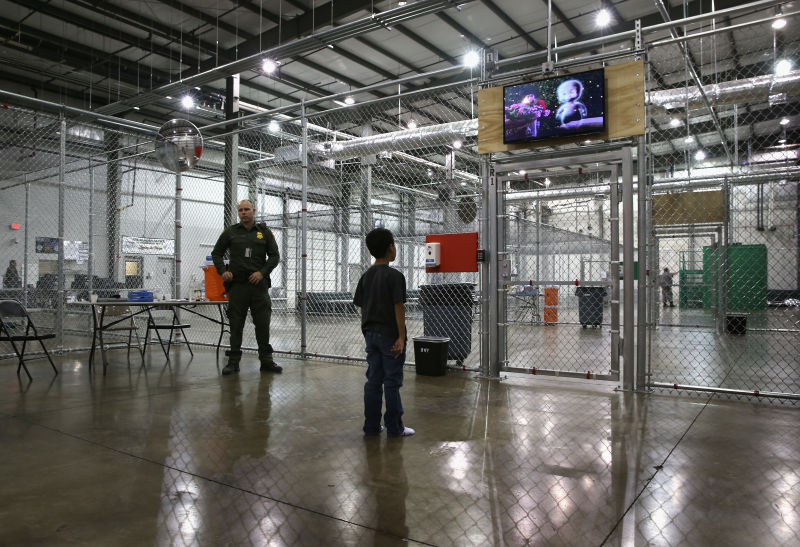A federal judge in Los Angeles has ordered the government to release immigrant children from family detention centers "without unnecessary delay," and with their mothers when possible, according to court papers.
In a filing late Friday, U.S. District Judge Dolly Gee refused the government's request to reconsider her ruling in late July that children held in family detention centers after crossing the U.S.-Mexico border illegally must be released rapidly.
Calling the government's latest arguments "repackaged and reheated," she found the U.S. Department of Homeland Security in breach of a long-standing legal agreement stipulating that immigrant children cannot be held in unlicensed secured facilities, and gave agency officials until Oct. 23 to comply.
Lawyers for Homeland Security had asked the judge to reconsider her ruling, arguing that the agency was already doing its best to move families through detention quickly and that the facilities had been converted into short-term processing centers.
Attorneys for the government are reviewing the order, said Nicole Navas, a spokeswoman for the Department of Justice, on Friday night.
